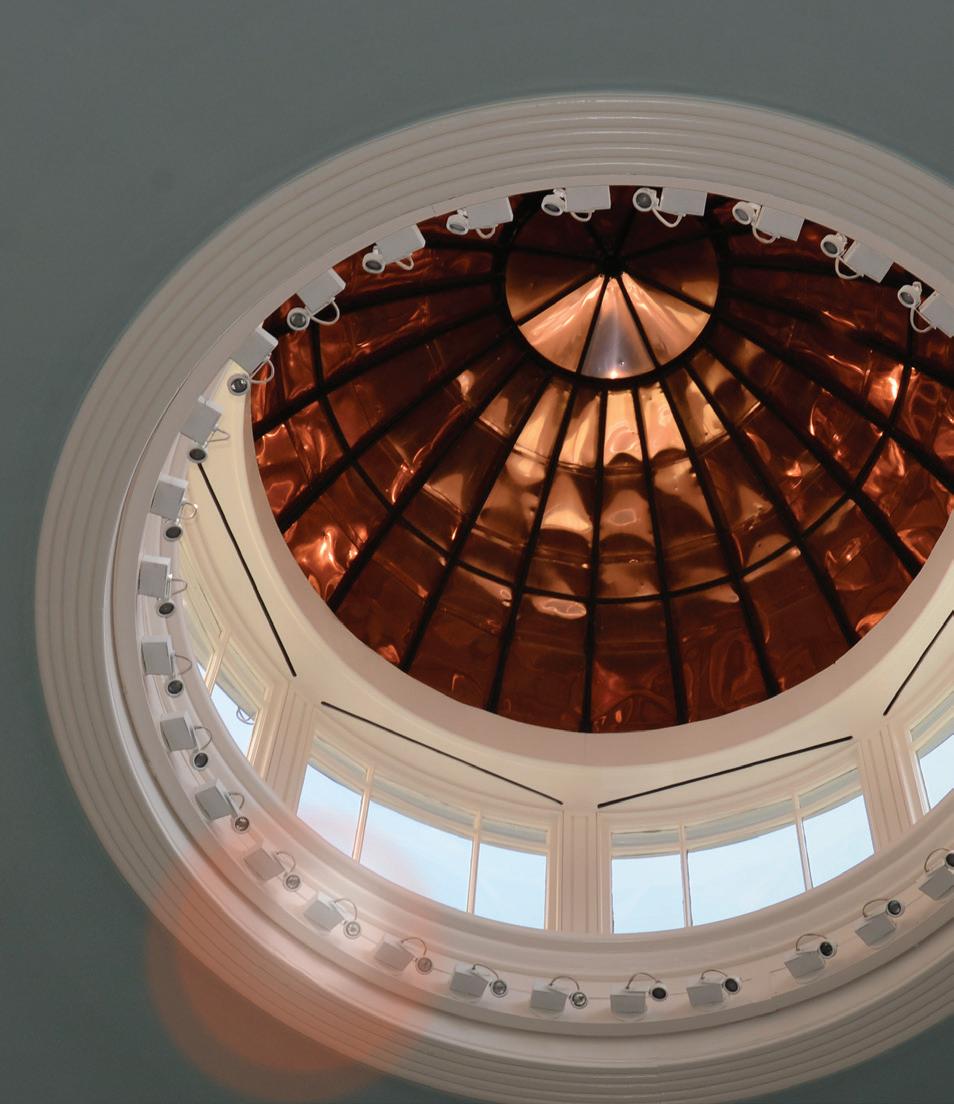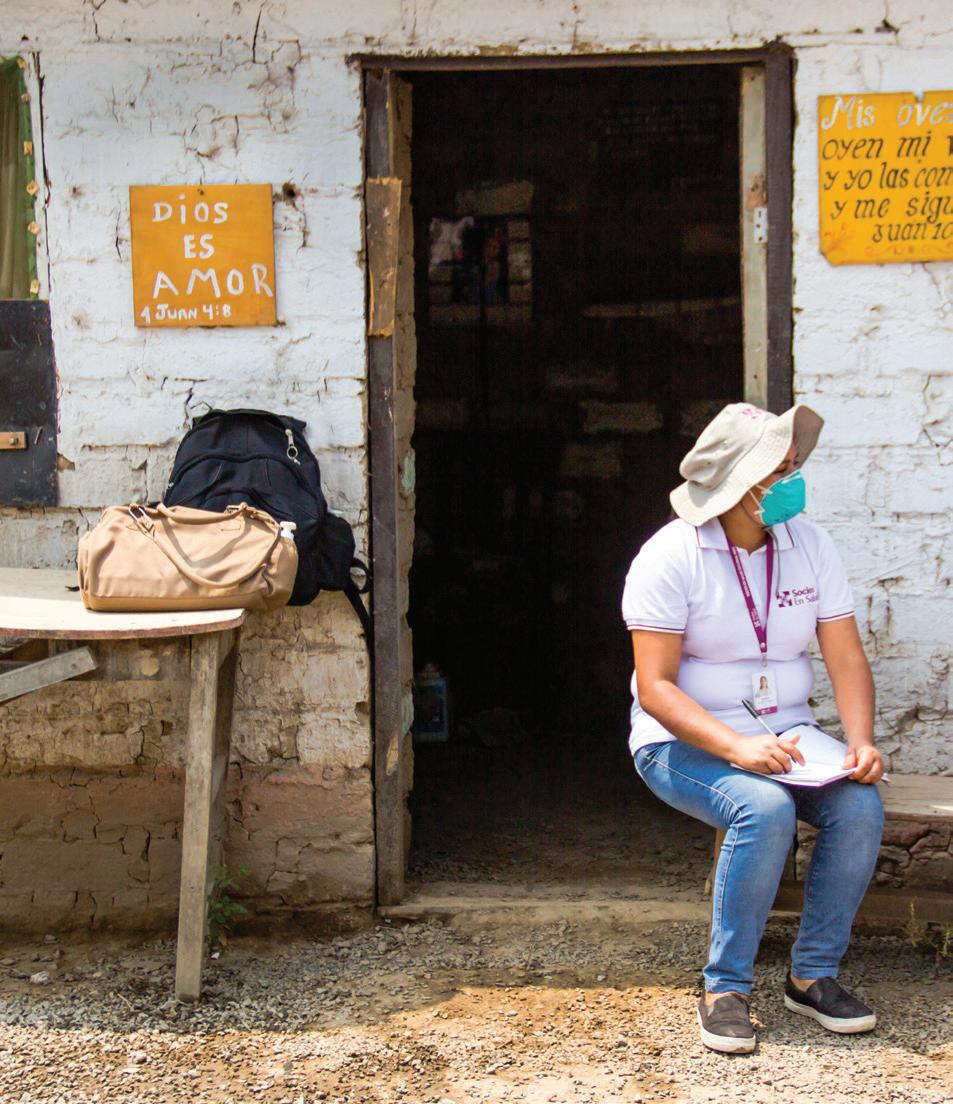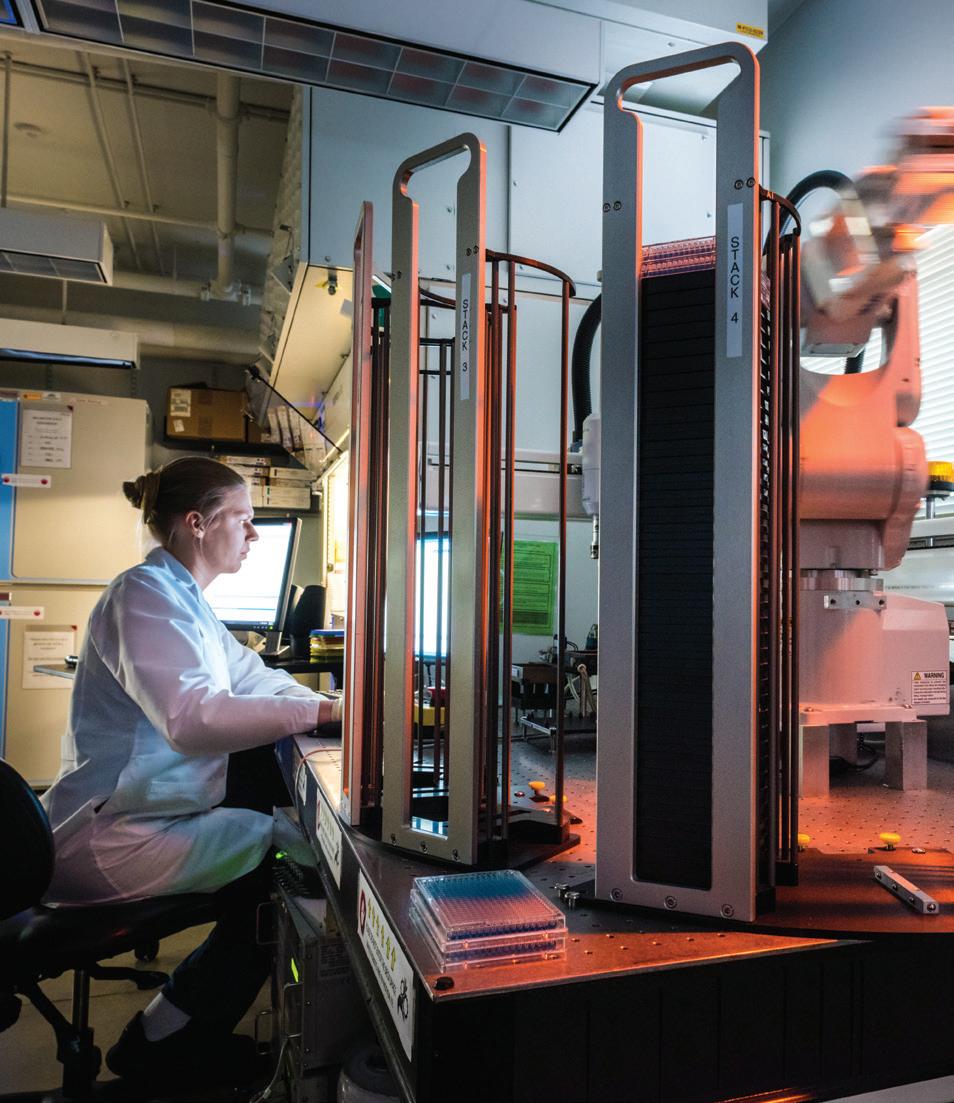
6 minute read
Education
“Watching my brother, who was born with osteogenesis imperfecta, interact with the health care system was among the reasons I developed an interest in medicine.”
Omar Bayomy MD 2017 CANNON SOCIETY
Advertisement
“Medicine allows me to unite a love of science and critical thinking with an overwhelming desire to dedicate my career to serving others.”
Jessica Ruiz MD 2018 LONDON SOCIETY
“There are few things more important than making a direct and tangible difference in the life of another human being.”
Aakash Shah MD 2016 PEABODY SOCIETY
“Neuroscience research allows me to explore fascinating questions about the human brain while using my creativity to help others.”
Krissy Lyon PHD 2019
“By fostering a strong connection to the humanities, medical professionals are well-positioned to make important contributions to broader, ever more complex bioethical issues.”
Diana Alame MBE 2017
“I want to work as a surgeon in postconflict settings where I can apply my policy studies while playing a significant role saving lives.”
Samia Osman MD 2017/MPP 2017 CASTLE SOCIETY
“Seeing my dad—a veterinarian for large animals—investigate disease pathologies opened my eyes to being a different sort of detective.”
Benyam Kinde MD 2018/PHD 2016 HOLMES SOCIETY
MORE ABOUT THESE STUDENTS hms.harvard.edu/hms-students
Dean’s Report 2016–2017
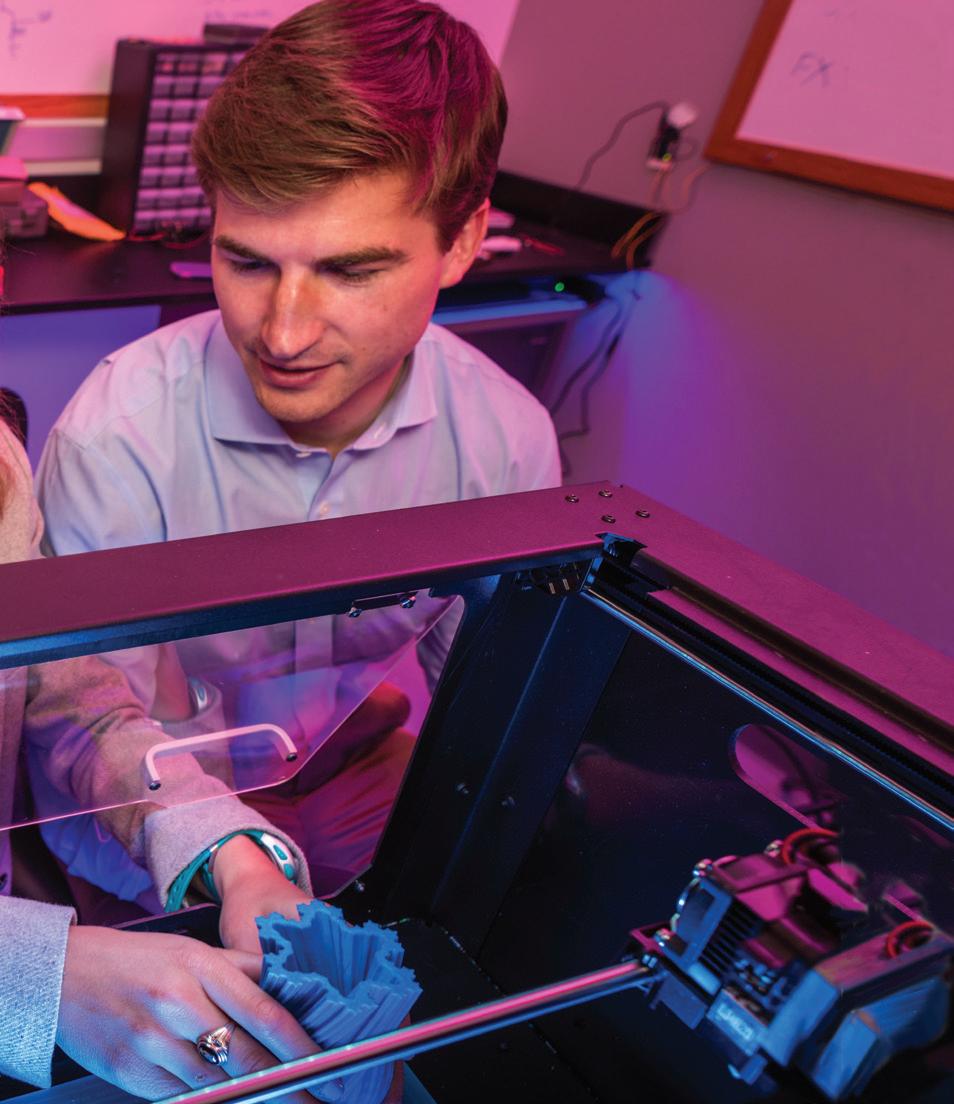
Within a budding entrepreneurial community at HMS, Holmes Society students Marissa Lynn and Matt Alkaitis work with a 3-D printer in the student-run Makerspace Prototyping Lab. In the background, Peabody Society student Kira Seiger and Castle Society student Steven Dalvin use design-modeling software to develop ideas for new medical technologies.
Dean’s Report 2016–2017 I EDUCATION
Katie Yates, Class of 2019, performs a physical exam on patient Larry Yensen at the Cambridge Health Alliance Windsor Street Health Center.
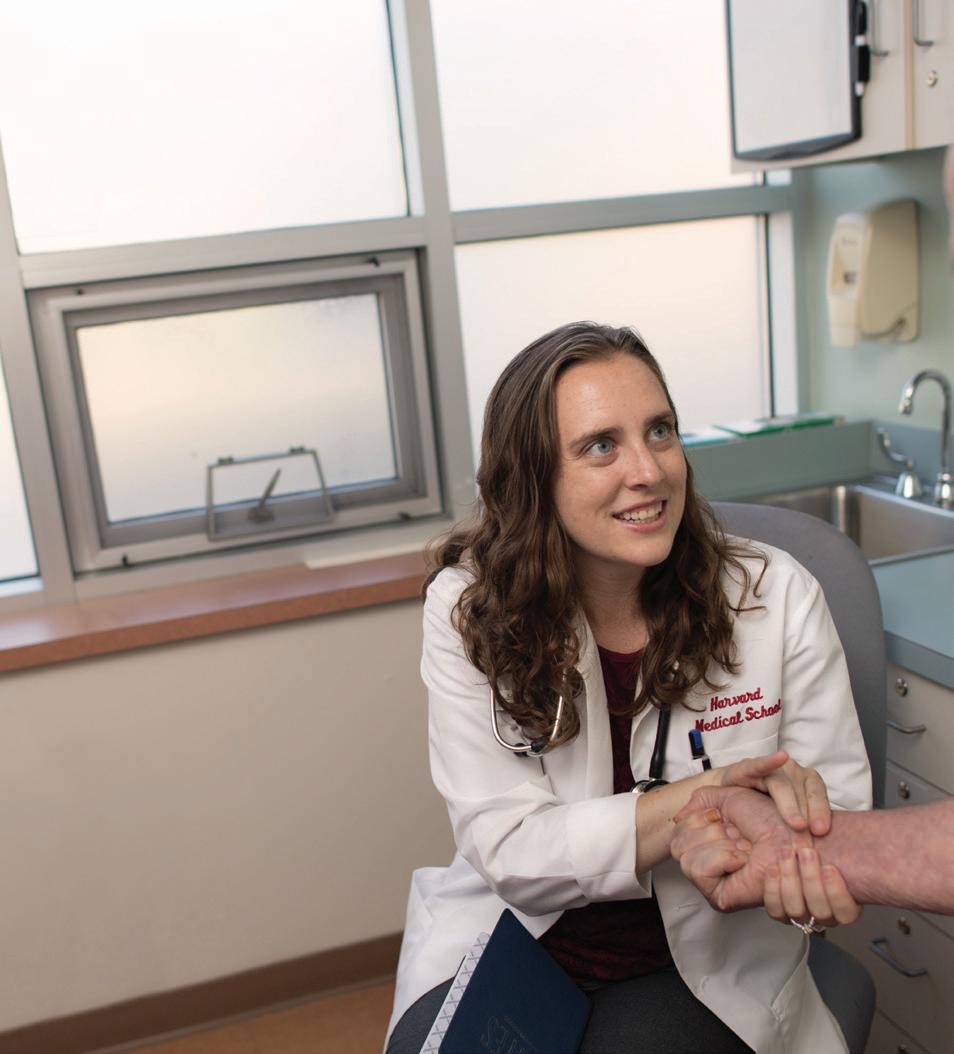
Opposite page: Richard Schwartzstein, the Ellen and Melvin Gordon Professor of Medical Education and director of The Academy at HMS, talks with students during the Homeostasis 1 course while Peabody Society student Leangelo Hall discusses Starling forces with classmates.
EDUCATION I Dean’s Report 2016–2017
PROGRAM IN MEDICAL EDUCATION
New Curriculum Underway
The School’s innovative Pathways curriculum, launched in 2015 and guided by Dean for Medical Education Edward Hundert, the Daniel D. Federman, M.D. Professor in Residence of Global Health and Social Medicine and Medical Education, has fundamentally restructured the four years of study at HMS. Using a flipped-classroom model of learning, students take basic, social and population science courses built on case-based, collaborative learning. Under the leadership of the newly appointed Dean for Students Fidencio Saldaña, assistant professor of medicine at Brigham and Women’s Hospital, students gain patientcare experience during the first year of the MD program. Applying skills taught in the new Practice of Medicine course, first-year students are assigned to primary care practices. To help them become more reflective practitioners, they hone interviewing and communications techniques and gain experience performing physical exams and making diagnoses. In the second year, these foundational experiences are connected to the site of their clerkship assignments. Third- and fourth-year work focuses on advanced science courses, clinical electives and mentored scholarly research projects that align more closely with career paths. In Fall 2016, entering students began version 2.0 of Pathways.
STUDENT AFFAIRS
Shaping Opportunities
To help shape the Pathways curriculum, representatives from four HMS student academic societies meet weekly with faculty to offer real-time feedback on the new course of study. These curriculum consultants sign up through The Academy at HMS, a faculty group supporting innovation in pedagogy and curriculum development. Under the guidance of former Dean for Students Nancy Oriol, faculty associate dean for community engagement in medical education, new opportunities are being created for students and faculty to work together in local communities and gain experience with the social determinants of health. The students are also reshaping their extracurricular activities by adding programs such

as a social medicine journal reading club and participating in groups involved in social dentistry, refugee work, racial justice, treatment of sexual assault injuries and health care for the homeless.
HMS FACILITIES IMPROVEMENTS
Future Planning
A formalized 10-year campus master plan has identified and made recommendations for campus-wide improvements that are designed to enhance and facilitate educational, research and administrative programs. Several major projects have been completed, including renovations to the Tosteson Medical Education Center. The new Clinical Skills Center houses 18 exam rooms with cameras that allow teachers to monitor student competencies. Flexible classroom learning spaces can accommodate small- and medium-sized groups. New learning suites are supported by advanced-technology teaching systems. High-capacity broadband installed throughout the campus is helping support the flipped-classroom pedagogy, which requires students to view short online concept videos before attending classes. Ongoing facilities improvement is overseen by a capital management committee composed of administrators and faculty who review space utilization plans, address facilities requests and set construction priorities.
Dean’s Report 2016–2017 I EDUCATION
GRADUATE EDUCATION
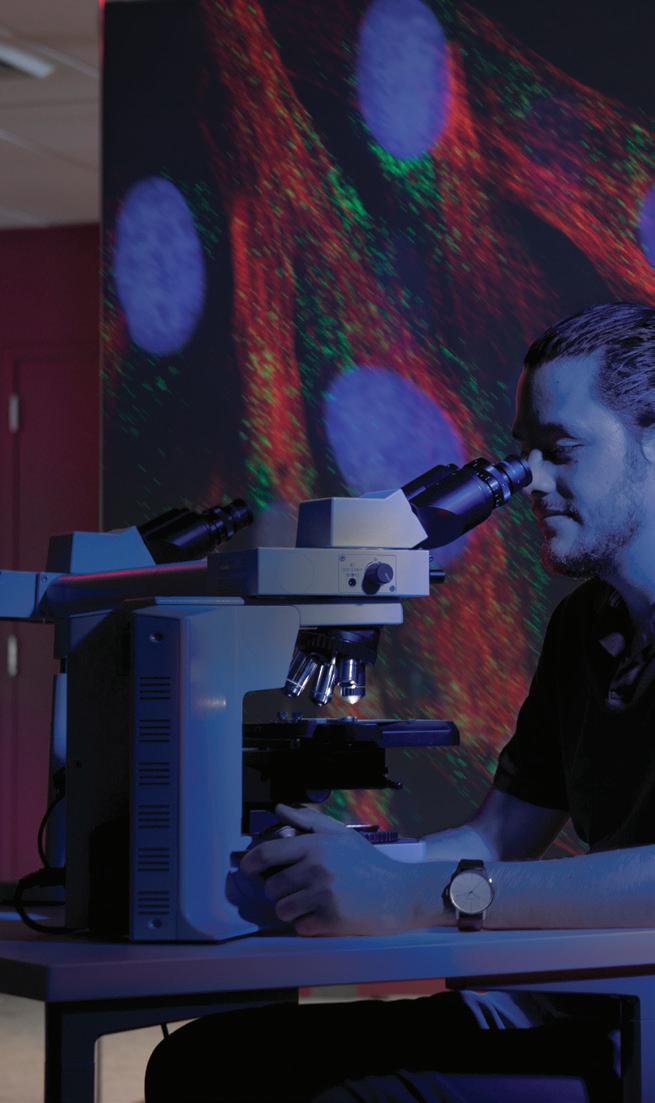
Developing Alliances and Creating Cohesion
As a blueprint for the future, the HMS strategic plan prescribed the formation of the Program in Graduate Education. It is now an active program guided by David Golan, the HMS George R. Minot Professor of Medicine at Brigham and Women’s Hospital, professor of biological chemistry and molecular pharmacology at HMS, and dean for basic science and graduate education. The program has led to greater cohesion between PhD programs and between graduate education and the Program in Medical Education, spurring innovative alliances and sparking new areas of study.
Max Mertens is pursuing a PhD in virology. A student in the David Knipe Lab, Mertens studies a cell’s antiviral response to infection by the herpes simplex virus. Pictured behind Mertens, green shows a protein responsible for detecting viral infection and red shows the skeleton of the cell. DOCTORAL STUDIES
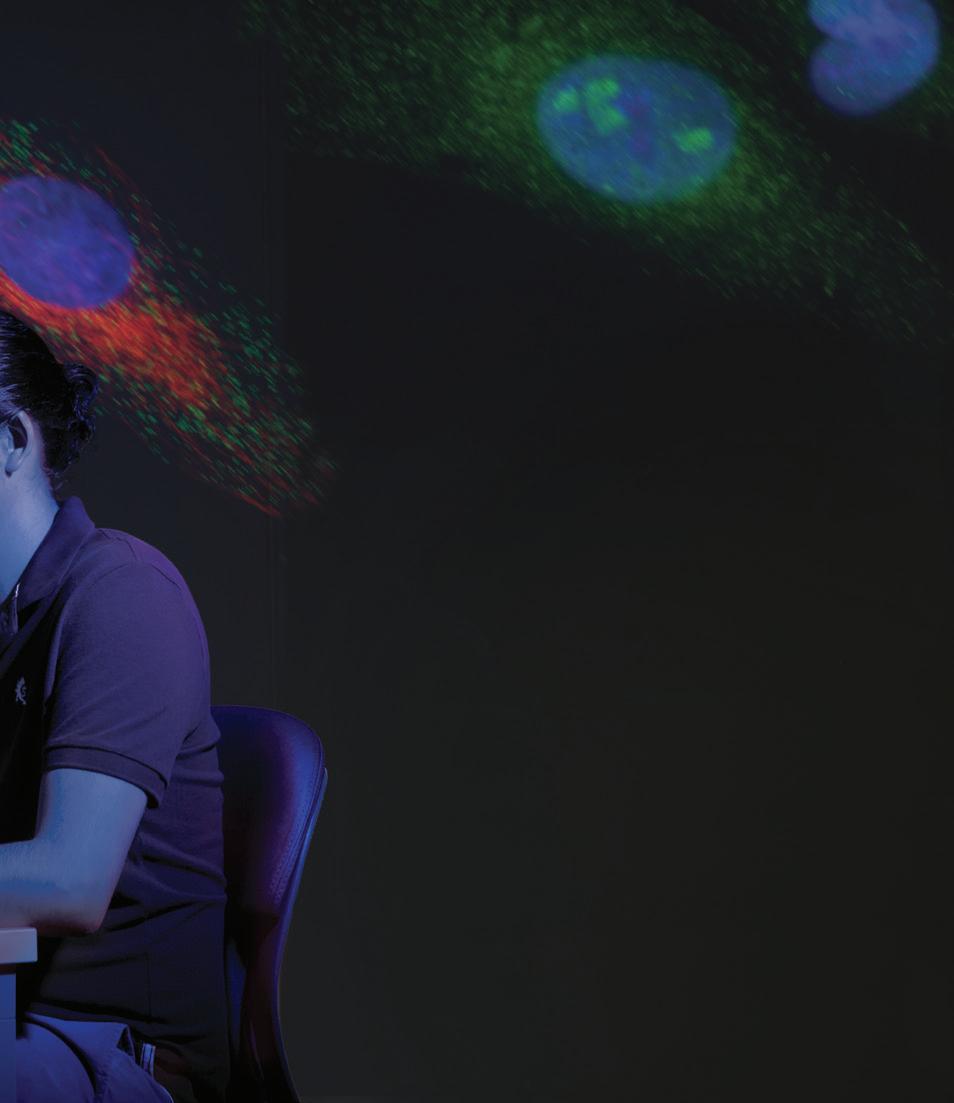
HMS doctoral programs are designed to launch superbly trained scientists into a wide range of careers, from biomedical research, academia and industry to positions in government service, patent law and science communications. In 2016, 841 PhD students were enrolled in nine disciplines. The HMS Division of Medical Sciences is made up of six programs, including bioinformatics and integrative genomics, biological and biomedical sciences, immunology, neuroscience, speech and hearing bioscience and technology, and virology. Three programs—biophysics, chemical biology and systems biology—are collaborations between HMS and Harvard’s Faculty of Arts and Sciences.
MASTER’S PROGRAMS
In recent years, HMS has launched six new master’s degree programs. The following concentrations, comprising one-year and two-year programs, are designed for biomedical professionals wishing to further their career aspirations. Enrollment in 2016 totaled 142.
MMSc in Clinical Investigation provides training in methods of clinical investigation for future leaders in patientoriented research.
MMSc in Medical Education prepares professionals to lead in medical education and develop new courses and curricula.
MMSc in Immunology provides a research-based foundation in basic, translational and clinical immunology.
MMSc in Global Health Delivery focuses on improving health services in resource-constrained settings.
Master of Bioethics covers bioethical questions that arise in clinical and research settings.
Master of Biomedical Informatics immerses physicians and scientists in data science methods.
INTERDISCIPLINARY PROGRAMS
Among its many successful enrichment programs, HMS and its partners are focusing on multidisciplinary areas of medicine:
The Bertarelli Program in Translational Neuroscience and Neuroengineering, a partnership with École Polytechnique Fédérale de Lausanne in Switzerland, advances faculty and student exchange programs that are aimed at moving basic research in neuroscience and engineering toward clinical applications.
The Leder Human Biology and Translational Medicine Program has attracted 150 doctoral students since its inception. It focuses on translating basic science discoveries into new ways to diagnose and treat disease.
The Osher Center for Integrative Medicine at HMS and Brigham and Women’s Hospital, which was created in 2010, connects HMS researchers, educators, clinicians and graduate students who are fostering a new model of wellness and healing by integrating therapies such as nutritional supplementation, chiropractic, meditation, acupuncture, tai chi, yoga and movement therapy into treatment plans and lifestyle approaches.
The Therapeutics Graduate Program, which develops interconnected themes that lead to new drug discoveries, enrolled nine PhD students in 2016, for a total of 37 students from seven of the Harvard Integrated Life Sciences programs. n
FOR MORE ON EDUCATION hms.harvard.edu/education

